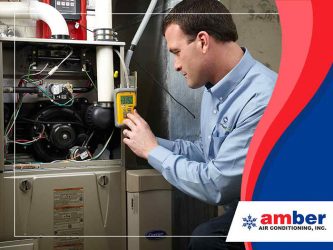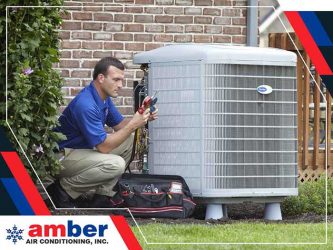There are many home improvements that can increase your home’s energy efficiency. Prioritizing which to do first should never be left to chance, which is why you should have an energy audit performed by a professional auditor before doing any home remodeling. Heating and air conditioning expert Amber Air Conditioning, Inc., shares why an energy audit may just be the most important thing you can do for your home. What Is an Energy Audit? During an energy audit, an auditor takes a look at everything that has to do with how your home consumes energy. This includes inspecting every appliance, every lighting fixture, and even small things such as power strips and smartphone chargers. The auditor also assesses components that might affect energy consumption, such as wall insulation, fenestrations and the integrity of your home’s ductwork. Problems such as leaks, insufficient insulation and inefficient appliances are noted and included in a detailed report. Remember to […]
The Environmental Benefits of Energy-Efficient HVAC Systems
The advent of energy-efficient HVAC systems has dramatically improved the way homeowners utilize their heating and cooling systems. In addition to providing savings on utility costs and improved performance, energy-efficient HVAC systems also have environmental benefits: Fewer Carbon Emissions Grid-based electricity is produced mostly from fossil fuels such as crude oil. More electricity consumed means higher direct carbon emissions, which, in turn, can be harmful to the environment. Therefore, households that use inefficient HVAC systems have a negative impact on the environment, and will continue to do so as long as they keep using the same. According to the Energy Information Administration, an average home spends almost half of its annual energy costs on heating and cooling alone. Making the switch to energy-efficient HVAC systems can have a long-term positive effect on your annual energy consumption. More importantly, your home’s carbon emissions and its environmental impact can be dramatically reduced. Ozone-Friendly Refrigerants You may have […]
5 Common Heating System Noises and What They Mean
Under normal operation, heating systems emit a steady and continuous hum. Sometimes, however, it may make noises that could indicate problems which shouldn’t be ignored. Amber Air Conditioning shares a list of common heating system noises and what they mean. Creaking and Popping – This usually happens when you’re starting up your heating system for the first time of the year. The temperature differences as the heating system starts up cause expansion and contraction in the pipes, resulting in creaking and popping sounds. As the temperatures normalize, these sounds should stop. On the other hand, persistent creaking and popping should be inspected by a heating and air conditioning professional. Buzzing – This is common with fuel-based heating systems. There are many reasons your heating system would start buzzing, and depending on the source, some of them can indicate a problem. For instance, if the control unit is buzzing, it could mean that the voltage transformer […]
How Thermostats Work
Thermostats are a small yet essential part of every modern air conditioner. It’s the “face” of your HVAC system, and with the right kind of thermostat, it can help improve the A/C’s overall efficiency. Amber Air Conditioning shares a closer look at how it works. How Do Thermostats Work? Most homeowners might be surprised to know that thermostats do not have anything that resembles a thermometer, despite being used to regulate your home’s indoor temperature. Instead, it relies on a much simpler mechanism: thermal expansion. Materials expand when exposed to heat, but at different rates. This principle is the backbone of the traditional thermostat: two strips of different metals, usually steel and copper, are fused together. The difference in expansion rates bends the strip as the temperature increases. This triggers a switch that turns on the air conditioner (or dampers, if you have a ducted system), which then begins pumping out cool air. As the […]
The Anatomy of an Air Conditioning System
An air conditioning unit is a complicated machine with lots of moving parts. Its design has evolved dramatically over time, but you only need to learn how its major components work to understand its operation. Filter Its job description is to remove particles from the air that enters the equipment. Not only does it help purify indoor spaces, but it also keeps the entire system free from dirt. Cleanliness is key to AC efficiency and longevity. Many factors come into play to know when to change filters. Generally, though, disposable one-inch filters require replacements every one to three months, while high-efficiency filters don’t need changing for six to 12 months. Compressor This large, electric pump is responsible for pressurizing the refrigerant as it moves from the evaporator to the condenser. It’s integral to the process of turning the refrigerant gas into liquid. Condenser It represents the hot side of the air conditioner. Its coils release […]












